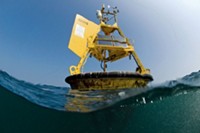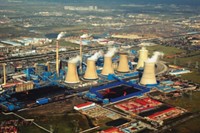Advertisement
Grab your lab coat. Let's get started
Welcome!
Welcome!
Create an account below to get 6 C&EN articles per month, receive newsletters and more - all free.
It seems this is your first time logging in online. Please enter the following information to continue.
As an ACS member you automatically get access to this site. All we need is few more details to create your reading experience.
Not you? Sign in with a different account.
Not you? Sign in with a different account.
ERROR 1
ERROR 1
ERROR 2
ERROR 2
ERROR 2
ERROR 2
ERROR 2
Password and Confirm password must match.
If you have an ACS member number, please enter it here so we can link this account to your membership. (optional)
ERROR 2
ACS values your privacy. By submitting your information, you are gaining access to C&EN and subscribing to our weekly newsletter. We use the information you provide to make your reading experience better, and we will never sell your data to third party members.
Environment
Fast Action Urged On Climate Change
UN report says impacts of warming are already here
by David J. Hanson
November 26, 2007
| A version of this story appeared in
Volume 85, Issue 48
WITH THE Nov. 17 release of the "synthesis report" of its latest scientific assessments, the United Nations' Intergovernmental Panel on Climate Change (IPCC) has delivered its strongest warning on the coming impact of global climate change.
"We have brought out an extremely policy-relevant document," said IPCC Chairman Rajendra K. Pachauri at the UN press conference in Valencia, Spain, announcing the report. "If this does not provide a strong scientific basis for those who are responsible for forming climate-change policies all over the world, then I'm afraid there is nothing else we can do."
Called a summary for policymakers, the report repeats the IPCC statement that global warming is unequivocal and could cause irreversible damage to the planet. The new report is a tight synopsis of the three major reports IPCC released this year on climate change. The three parts dealt with the evidence for global warming, how the world might adapt to the change, and what mitigation is possible.
UN Secretary-General Ban Ki-Moon stressed that the current IPCC report holds out the hope that "concerted and sustained action now can still avoid some of the most catastrophic scenarios" that are described in the IPCC analysis. Such scenarios include increases in sea level due to thermal expansion of the oceans; increases in the frequency of temperature extremes, heat waves, and heavy precipitation in parts of the world; and widespread impacts on human health.
"I can tell you with assurance that global, sweeping, concerted action is needed now," Ban said during the press conference. "There is no time to waste."
Pachauri put the situation in more personal terms. "We really need a new ethic where every human being faces the challenge and starts to take action through changes in their lifestyle, attitude, and behavior," he said.
The release of the report was timed to presage the next international meeting on global climate-change policy in Bali, Indonesia, on Dec. 3. The data in the report are expected to form the basis for discussions by world leaders as they work to agree on a successor treaty to the Kyoto protocol on greenhouse emissions, which expires in 2012. The executive director of the Bali conference, Yvo de Boer, has said that, compared with the discussions that led up to the Kyoto protocol, this time he hopes to get more involvement from the U.S., Australia, and developing nations, especially China.
Although the U.S. has moved slowly toward taking action to mitigate its greenhouse gas emissions, it has not favored mandatory reductions like those called for under the Kyoto protocol because of the fear of severe economic impacts. Legislation before Congress could reduce U.S. emissions up to 40% by 2030 with a combination of energy efficiency, stricter fuel standards, and increased use of renewable energy supplies.
Rep. Edward J. Markey (D-Mass.), chairman of the House Select Committee on Energy Independence & Global Warming, said the IPCC summary puts pressure on the White House and still-reticent members of Congress to move quickly. "The scientists have done their job, and now it's time for President Bush and this Congress to do their part and support immediate action on global warming," he said in a statement.





Join the conversation
Contact the reporter
Submit a Letter to the Editor for publication
Engage with us on Twitter